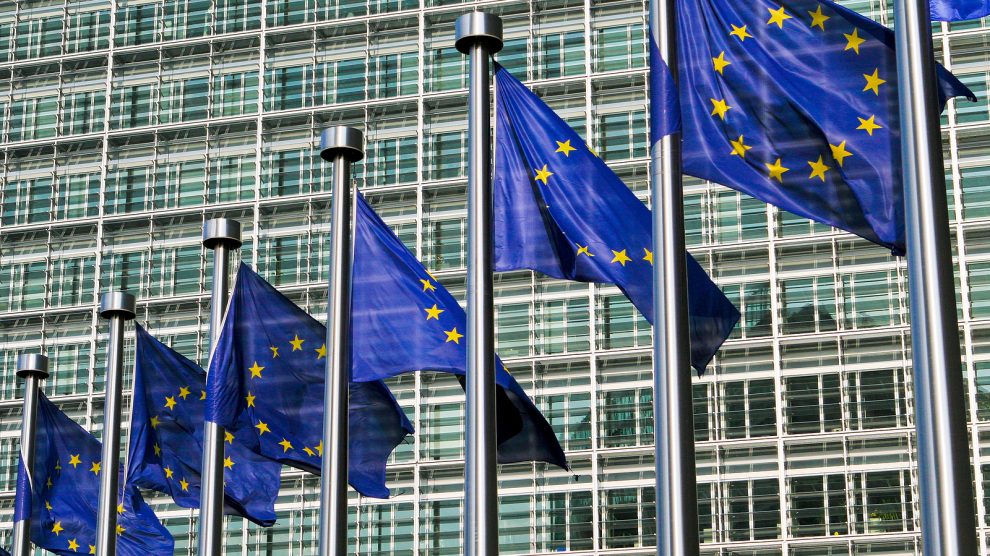Despite decades of EU political support and financial assistance, fundamental problems persist in many Western Balkan countries.
European Union action has had little impact in advancing fundamental rule of law reforms in the Western Balkans, according to a special report published by the European Court of Auditors (ECA).
While some technical and operational reforms have taken place in the region, in a context of insufficient political will and a lack of engagement, EU support has been largely insufficient to tackle persistent problems in areas such as the independence of the judiciary, the concentration of power, political interference, and corruption, the auditors say.
- Albania, North Macedonia, Serbia push ahead with Open Balkans
- EU enlargement is not just about democratic values and the rule of law. There’s the economy to think about too
- Is the EU losing the Western Balkans?
Four of the six Western Balkans states are EU candidates: Albania, North Macedonia, Montenegro, and Serbia, while two others, Bosnia and Herzegovina and Kosovo, are potential candidates for membership. Yet all continue to face issues concerning the rule of law and fundamental rights.
For more than two decades, the EU has been striving to help them in implementing a reform agenda. EU assistance is built around two intertwining streams of action: financial support (amounting to around 700 million euros between 2014 and 2020) and political dialogue. The ECA’s report suggests that this has not been enough.
“EU support for the rule of law in the Western Balkans has clearly not been successful in bringing about wholesale change,” says Juhan Parts, the member of the European Court of Auditors responsible for the report.
“The modest progress made over the last 20 years threatens the overall sustainability of the EU support provided under the accession process. Constant reforms lose credibility if they do not deliver tangible results.”
While EU priorities for the rule of law in the Western Balkans are clear and generally translated into specific action under the instrument for pre-accession, the auditors nonetheless conclude that key risks to the sustainable impact of its action remain insufficiently mitigated.
Measures to address weak administrative capacity and political will – which are both essential – are too few and often ineffective. In addition, the auditors point out the inconsistent application of preconditions for project funding and implementation.
Similarly, the EU has too rarely exploited the possibility of suspending assistance if a beneficiary fails to observe the basic principles of democracy, the rule of law and respect for human rights. Finally, the auditors note that EU support for civil society is insufficient in meeting the needs of the sector and is mostly based on
short-term projects.
It’s not how much you spend, it’s what you do with it
The report also suggests that where EU action does seem to have contributed to reforms, it is because reports tend to focus on quantitative outputs, and not enough on what the reforms have actually achieved.
Performance assessments carried out by the EU’s auditors paint a very different picture. They suggest that progress on the rule of law situation in the region has generally been rather limited, and sustainability has proved difficult to achieve.
Despite decades of EU political support and financial assistance, fundamental problems persist in many Western Balkan countries. These include problems with the independence of the judiciary, the fight against corruption (which remains pervasive), and freedom of expression.
The auditors recommend that the European Commission should strengthen the mechanism for promoting rule-of-law reforms, increase support to civil-society organisations and independent media sources, should link funding more closely to progress on the rule of law, and improve project reporting and monitoring.
Commission response
In response to the ECA’s report, the Commission says that a robust anti-corruption framework, including a solid track record of results, remain key requirements for EU accession.
“Through the adoption of revised enlargement methodology in February 2020, further emphasis has been placed on rule of law, fundamental rights and democracy, public administration reform, socio-economic stability. Anti-corruption aspects are considered with all their cross-cutting relevance,” adds the Commission, which also points to “concrete and extensive anti-corruption interim benchmarks” set by member states in the context of accession negotiations.
Montenegro and Serbia are so far the only Western Balkans states to open accession negotiations.
The Commission itself has admitted that delays in the official launch of accession negotiations with Albania and North Macedonia – currently blocked by a Bulgarian veto over language and minority rights disputes – are having “a negative impact on the credibility of the EU”.
The ECA’s report is likely to do little to boost it.
Unlike many news and information platforms, Emerging Europe is free to read, and always will be. There is no paywall here. We are independent, not affiliated with nor representing any political party or business organisation. We want the very best for emerging Europe, nothing more, nothing less. Your support will help us continue to spread the word about this amazing region.
You can contribute here. Thank you.








Add Comment